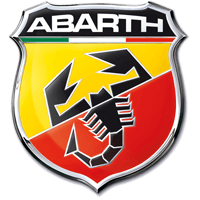What is an Estate Car?

[Audi A4 Estate shown above]
For some, there comes a time in life when you start to realise that the best car for you is an estate vehicle.
It’s usually a sign that you are a parent in need of a solid workhorse vehicle that has to transport the kids, the dog, those bicycles, and more shopping than anyone should buy from the supermarket – weekly!
Gone are the dreams of owning a zippy two-seater sports car. But if you are honest, deep in your private thoughts, you are proud to need an estate car.
You might even stretch a bit, and rather than look for the most reliable estate cars in the UK, go for something from the range of sporty estate cars or an off-road estate vehicle with four-wheel drive and a powerful engine - and still get all that practicality.
What is the Purpose of an Estate Car?
The word ‘estate’, meaning ‘a large area of land’ is used to convey the feeling of space that top estate cars provide.
There’s no hiding the fact – an estate car is all about the boot space. Essentially, it’s a hatchback with a stretched rear to provide a substantial improvement in storage and cargo space.
It’s a family vehicle, designed to transport people and luggage in equal measure. The average estate car boot size is quite remarkable, able to fit everything you might need for five people to go camping, for example.
Fold the back seats down and you’ll fit a double bed in there, mattress and all. Great for moving home, great for long explorations, great for converting into an emergency bed in the middle of the night.
Estate Car vs. Hatchback
Many estate cars have an obvious similarity to their hatchback cousins. In fact, the closeness in design is so alike that ‘cousins’ seems too distant a term and ‘sibling’ provides a better fit.
This means they benefit from all the design credentials poured into the hatchbacks and it isn’t too hard to find good looking estate cars any more – gone are the very angular straight lines of the 1980s Volvo heydays.
Similar in everything but size – the comparison between the estate and the hatchback is easy. Do you need the boot space on a regular basis? If so, plump for the estate and if not – maybe the hatchback is a better fit.
Estate Car or Station Wagon?
Estate car in the UK, station wagon in America. Like the saloon/sedan situation, crossing the Atlantic sees a confusing change of terminology.
Want the best family estate car in the UK? Try searching for best family station wagon and open up a world of additional options.
Advantages and Disadvantages of an Estate Car
Owning or leasing an estate car is different to a more standard car purchase – all of a sudden, the differences feel extra important – you can fit a pair of adult St. Bernards in the back, but parallel parking becomes its own new chore.
If you are asking yourself ‘why should I get an estate car?’, then here are some pros and cons:
Pros
-
Boot space – this is the main reason for choosing an estate car over anything else. The size of an estate car boot, with the back seats folded down, is generally large enough for a fully-grown man to lie down in and comfortably shut the boot door. It is a standard height, meaning that as a transport vehicle it doesn’t come with quite the same abilities as a van, but it’s a worthy middle ground between ‘car’ and ‘van’.
-
Fuel economy – this may come as a surprise, but estate cars often have impressive fuel statistics. Pick a diesel estate and you could find your standard every-day fuel costs dropping and your long-distance drives feeling astonishingly cheap.
-
Safety – estate cars tend to have excellent safety records, with solid construction and an eye to the family-oriented driver.
-
Luxury – more into the higher-end market of luxury estate cars and you will find a vehicle with an expansive cabin and interior designed with the long-distance drive in mind. Where smaller cars (including hatchbacks) may skimp on driver legroom, many estates have enough space to make even the tallest driver feel relaxed.
Cons
-
Size – everything you gain in interior space, you lose in exterior size. Parking an estate car can be difficult and while modern estate cars feature the latest technology to help (including parking cameras and sensors), parking an estate does require patience and practice.
-
Speed – a larger car doesn’t always mean a larger engine. Many estate cars are relatively low on overall power meaning both acceleration and top-end speed can suffer as a result. Estate cars often adopt a ‘steady’ rather than ‘speedy’ pace, especially when the load is heavy.
-
Price – estate cars cost a little more than other options available, although this can be offset by the cheaper running costs of the diesel vehicles.
-
Lack of seats – a car as large as an estate feels as if it should have more seats for the larger family, but despite its size, you are getting no more passenger room than a standard hatchback. That extra space is all for cargo and it is illegal to put a child in the back, no matter how tempting!
The Best Estate Cars
These are some of the most popular and reliable estate cars bought or leased in the UK:
- Skoda Superb
- Skoda Octavia
- Audi A4 Estate
- BMW 3 Series Touring Estate
- Dacia Logan MCV
- Volvo V60 Estate
- Hyundai i30 Tourer
- Jaguar XF Estate
- Fiat Tipo Station Wagon
- Mercedes E-Class Estate
- Mazda 6 Tourer
We have a range of lease deals available and if none of the above appeal to you, be sure to contact us to inquire about other estate models we have available - there are many more!
Lease an Estate!
If you are interested in driving an estate car, often the best choice is to lease one, whether that's on a personal leasing or business leasing contract.
With a wide range of vehicles on offer, as well as advice on the best things to look for in an estate car, we at Complete Leasing are here to help you get the perfect lease deal.
Call us today for a helpful chat or take a look at our extensive range of estate car leasing deals online.




































